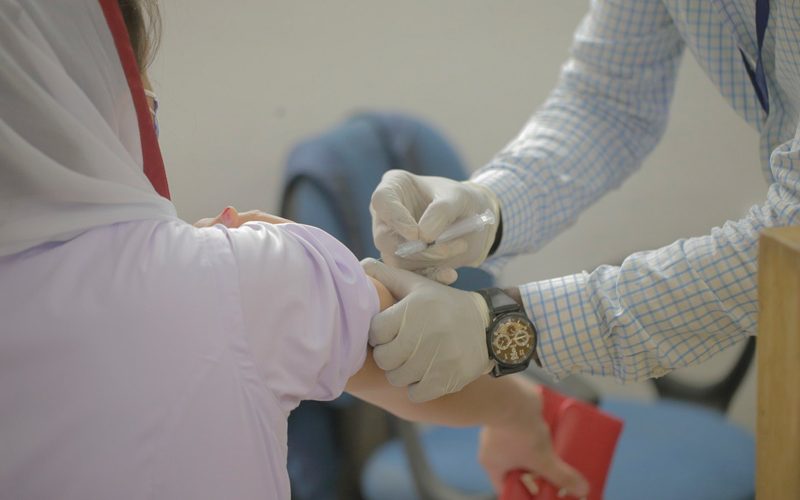HOW COULD THE COVID VACCINE BE DEVELOPED SO FAST, WHEREAS IT TAKES MUCH LONGER FOR OTHER DRUGS OR VACCINES!
How could the COVID vaccine be developed so fast, whereas it takes much longer for other drugs or vaccines!
The question has been often asked; raising doubts, flaming controversies, and most importantly slowing down the vaccination drive.
Here are some scientific and other evidences that explain this unprecedented feat, as follows.
Were the COVID vaccine trials rushed ahead of time?
The vaccine trial can’t be rushed ahead because the immune system takes a certain amount of time to generate immunity. What can be rushed, however, is paperwork, manufacturing of the vaccine doses, and reduction of bureaucratic steps. These took place at the same time as the trials were underway. Normally they would wait until after completion, but the pandemic led to many steps being undertaken simultaneously.
What is emergency use authorization?
Internationally, the regulatory authorities look at two things in the clinical trials, before approval of a vaccine or drug for general use:
- a) safety of the participants b) data quality and integrity
In the case of the COVID-19 vaccines, the FDA didn’t give the routine approval. Instead, the three initial vaccines (Pfizer, Moderna, and JJ) were granted emergency use authorization (EUA) from the FDA.
‘Emergency use’ means that you weigh the risks of the moment—the COVID crisis—against the minimal increase in knowledge you might gain by following the trials longer.
The standards are never compromised even under an emergency authorization, rather an extensive standard review process was expedited.
Did the COVID vaccine trials achieve enough strength to be put into practice?
- a) All medicines go through comparative trials with medicines given to half and placebo (substance with no therapeutic effect) to the other half.
In less common diseases, it takes years for enough people to be affected and included in both halves, to show the difference. Hence, trials usually require much longer periods to achieve scientific significance.
In the COVID-19 pandemic, there was no shortage of patients, which allowed the trial period to be short.
- b) Vaccines were approved after their efficacy (chances of not getting COVID after the vaccine) and safety (chances of harm) were found to be satisfactory.
Between different vaccines, there are differences of efficacy; however, their effectiveness of preventing serious forms of Covid, close to 100 percent, is similar.
What measures made it possible for a vaccine to be put into practice so soon?
Expedition of logistics: It was important for the governments as well as the pharmaceutical companies both to remove or reduce paperwork, manufacturing delays, and other bureaucratic hurdles that occur during research hence, extra steps were taken.
Emergency use of authorization: the regulatory authorities authorized emergency use, once safety and efficacy data was confirmed.
Availability of huge number of subjects: A huge number of people were available for inclusion in trials. Hence the strength required for achieving significance was readily available. Enrollment for trials was also faster due to the hype of the pandemic.
Prioritization: Governments and companies put resources together as a priority towards COVID-19 treatments and vaccines.
Early identification: The actual virus and its genomics, essential to initiate research was available from China as early as January 2020, to researchers around the world. This itself takes months to years.
Availability of Technology: The Messenger RNA (mRNA) vaccine technology, used by Pfizer/Moderna, has been in the process of development for over two decades so the research didn’t have to be started from scratch. Similarly, the University of Oxford has done extensive work on previous SARS viruses.
Divine influence: After all, Allah’s mercy should never be forgotten due to which things could be done fast and yielded effective results.
Written by Professor Sohail Akhtar; Senior Consultant and HOD Pulmonology; Indus Hospital & Health Network
References:
- https://www.healthline.com/health-news/heres-how-it-was-possible-to-develop-covid-19-vaccines-so-quickly.
- https://www.google.com/amp/s/amp.theguardian.com/society/2020/dec/08/how-has-a-covid-vaccine-been-developed-so-quickly
- https://www.immunology.org/coronavirus/connect-coronavirus-public-engagement-resources/how-covid19-vaccine-developed-fast
- https://www.nature.com/articles/d41586-020-03626-1
- https://www.medscape.com/viewarticle/941719




